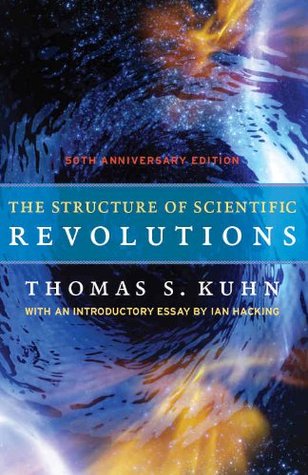many of the famous classics of science fulfilled a similar function. Aristotle’s Physica, Ptolemy’s Almagest, Newton’s Principia and Opticks, Franklin’s Electricity, Lavoisier’s Chemistry, and Lyell’s Geology—these and many other works served for a time implicitly to define the legitimate problems and methods of a research field for succeeding generations of practitioners. They were able to do so because they shared two essential characteristics. Their achievement was sufficiently unprecedented to attract an enduring group of adherents away from competing modes of scientific activity.
...more
Welcome back. Just a moment while we sign you in to your Goodreads account.


